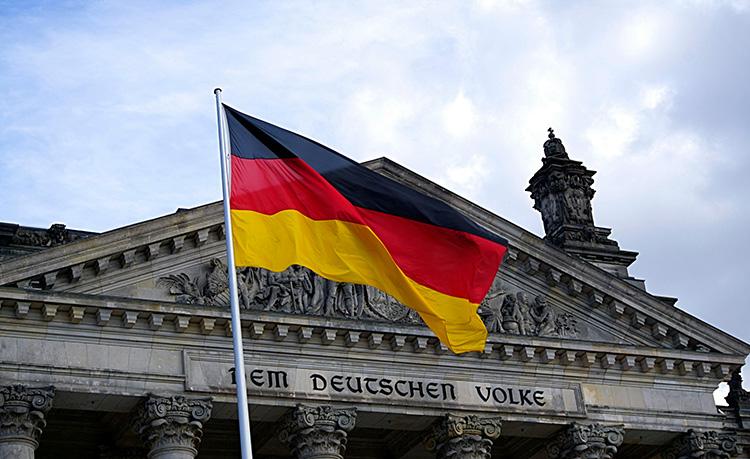German government lowers economic growth expectations, anticipates 0.2% decline
The German government has revised its economic forecast, announcing it no longer expects growth for 2024 and instead projects a decline of 0.2 percent in the country’s Gross Domestic Product (GDP). This update was revealed at a press conference by Economy Minister Robert Habeck, who indicated that initial estimates had predicted a 0.3 percent growth for the year under Chancellor Olaf Scholz’s administration.
Germany’s economy experienced a contraction last year, and despite these setbacks, the government anticipates a return to growth in 2025, forecasting an increase of 1.1 percent. Previously, the government had projected a one percent growth for next year. The Cabinet also released an outlook for 2026, predicting GDP growth to reach 1.6 percent, supported by expected increases in household consumption and industrial exports.
Inflation is projected to ease, with the government forecasting a slowdown to 2.2 percent for this year, followed by 2.0 percent in 2025 and 1.9 percent in 2026. This marks a significant decrease from last year’s inflation rate of 5.9 percent.
The decline in the German economy, the largest in Europe, is attributed to several factors, including a weakened industrial sector due to reduced natural gas supplies from Russia following the invasion of Ukraine, sluggish demand from China, and challenges facing the automotive industry amid the shift to electric vehicles. At the end of September, leading economic institutes downgraded their outlook for Germany, predicting a GDP contraction of 0.1 percent for the year. This follows a 0.3 percent decline in 2023, making Germany the weakest performer among Eurozone countries.
If the revised forecasts hold true, Germany would be the only member of the G7 group of advanced economies to experience an economic downturn this year. No other G7 nation currently anticipates a decline in GDP.
Despite the grim outlook, Minister Habeck expressed optimism regarding the German economy’s recovery. “The current economic framework conditions are not satisfactory, but we will work to overcome this,” he stated, highlighting ongoing geopolitical uncertainties, including conflicts in Ukraine and the Gaza Strip.
The government is preparing a “growth package” aimed at revitalizing the economy. Habeck indicated that if fully implemented, these measures could accelerate economic growth and boost employment. However, concerns have been raised that some of these measures may face opposition in the Bundestag from state governments led by the conservative CDU/CSU, which is preparing for parliamentary elections next September.
Economic unions have voiced skepticism about the adequacy of the proposed growth measures, calling for more comprehensive reforms to address high energy prices, bureaucratic burdens, and a growing shortage of skilled labor in Germany.
Czech Economy Impacted by German Outlook
The deteriorating outlook for the German economy is expected to have ripple effects on the Czech Republic, potentially leading to a decline in growth of up to 0.2 percentage points. Analysts indicate that while the Czech economy is anticipated to grow this year, its prospects are gradually diminishing due to interconnected economic ties.
“If Germany’s performance worsens by 0.5 percentage points compared to previous estimates, it could translate to a 0.1 or maximum 0.2 percentage point loss in the Czech Republic,” said Vít Hradil, an analyst at Cyrrus. He emphasized that domestic factors are likely to drive the Czech recovery, given the muted prospects for exports.
Deloitte analyst David Marek noted that the challenges facing the German economy are not merely cyclical but structural, further complicating the outlook for the Czech economy.
Petr Bartoň, an analyst at Natland, warned that the expected growth in the Czech economy, anticipated for the first time since the COVID-19 pandemic, is now at risk. “If the German economy continues to shrink, achieving even reduced growth estimates will be difficult,” he said.
Tomáš Cverna, an analyst at XTB, pointed to the automotive industry’s struggles, particularly at Volkswagen, as contributing factors to Germany’s economic woes, which are impacting the Czech economy as well.
As Czech exports remain heavily concentrated in traditional sectors, including automotive production, the impact of Germany’s economic difficulties is expected to persist. DRFG analyst Filip Emmer highlighted that ongoing energy crises and decarbonization efforts in Europe will continue to influence both German and Czech output.
Despite the challenges, Ron Renda, an analyst at the Chamber of Commerce, expressed cautious optimism for the Czech economy, suggesting that while growth expectations are being adjusted downward, the country is in a relatively better position than Germany. The Czech economy is projected to grow by around one percent this year.
Source: CTK









